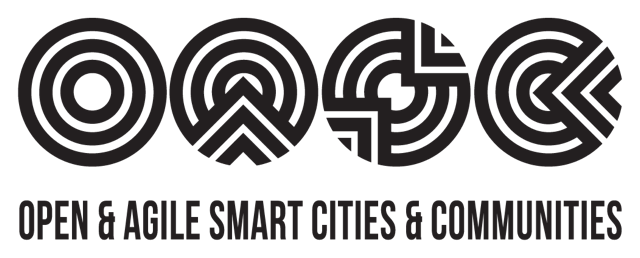History
The OASC Story
Today, Open & Agile Smart Cities & Communities is a network that connects cities & communities worldwide to learn from each other and exchange digital, data-driven solutions based on Minimal Interoperability Mechanisms (MIMs). We represent our members towards international institutions, fora and standards developing organisations to ensure that their voice is heard when new standards come about.
How It Started
Open & Agile Smart Cities & Communities launched in March 2015. Our founders had realised that innovation resulting from publicly-funded projects usually hit a dead-end soon after the funding stopped. With frustration on both the demand and supply-side. Co-founder Martin Brynskov, Aarhus University, said in 2015:
What was – and still is – missing was a global market that makes it possible to share solutions between cities that are facing similar challenges, while respecting their different cultural, economic, social, and technical structures.
Enter the Frontrunners
A first group of 31 cities joined the new initiative in March 2015 and, soon afterwards, the movement began to grow. Today, OASC represents a diverse community of cities from Argentina to Japan.
Back in 2015, the organisation was a grassroots forum for local government representatives, researchers, and policy-makers to come together and bring cities closer to standardisation.
With the support of front-runner cities and our founding partners – Aarhus University, Business Tampere, Connected Places Catapult, and imec -, the initiative became a not-for-profit in late 2017.
Today, we are creating sustainable impact for our member cities by working towards a common technical ground for cities & communities – based on open standards, open APIs, and shared data models. We call this common technical ground Minimal Interoperability Mechanisms.
